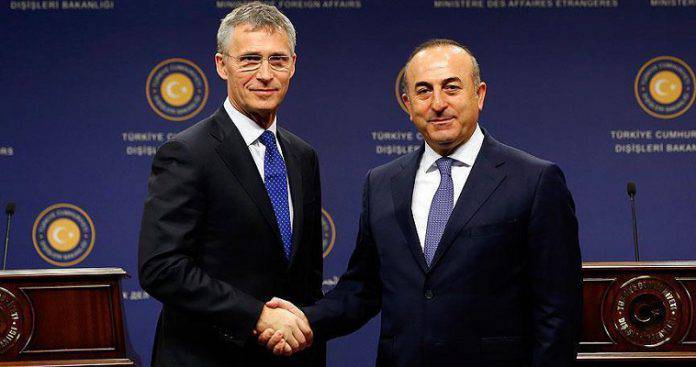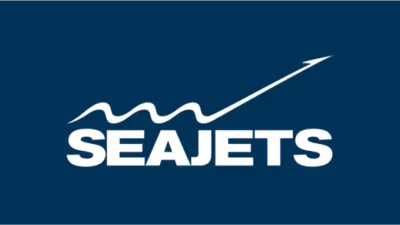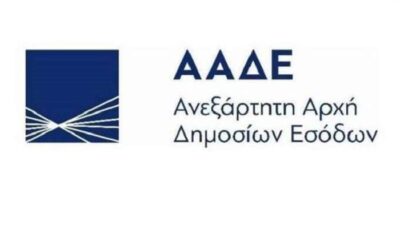Nefeli Lygerou: Stoltenberg’s communication coup was attempt to not impose sanctions on Turkey
04/09/2020
Ankara is breaking one record after another as concerns proclivities and tensions in the Eastern Mediterranean, while the US, Germany and NATO, led by Jens Stoltenberg, are now pushing openly for a bilateral dialogue that will in fact be negotiations on unilateral Turkish expansionist claims.
A tweet from the NATO Secretary General, known for his pro-Turkish stance, set the press offices on fire, as he more or less announced the start of negotiations on technical issues. By the time the Greek rebuttal came, the impression had been formed that a compromise had been found to channel the Greek-Turkish crisis from the military to a diplomatic channel.
The talks on technical issues were seen as a first step towards de-escalation to bring the two sides to the table on major bilateral issues. According to Jens Stoltenberg, his own contacts with Greek and Turkish leaders had preceded. If we add to this the telephone communication between Merkel and Erdogan, it is understandable why the tweet in question was interpreted as a turning point.
It did not take long for diplomatic sources in Athens to abruptly drop expectations of an easing of the crisis, categorically refuting Jens Stoltenberg: “The information that has come to light about alleged technical talks in NATO does not correspond to reality.”
“In any case, we have restrained the intention of the NATO Secretary General to work to establish de-escalation mechanisms within NATO. However, de-escalation can only come from the immediate removal of all Turkish ships from the Greek continental shelf “, clarified Athens, recalling the condition that it has set from the beginning in order to sit at the table. A term that was considered reasonable by all European partners and not just.
Stoltenberg’s communication coup
In fact, the NATO Secretary General, with both Germany and the United States behind him, tried to circumvent the condition set by Athens, that is the withdrawal of Oruc Reis and Turkish warships from the potential Greek EEZ to precede any talks. In other words, an attempt was made to create a communication coup to the detriment of Greece, bypassing the condition it had set and falsely presenting that it had agreed to something it had not agreed to.
Once again, Jens Stoltenberg violates his institutional role in promoting Turkish interests. This time, however, he exceeded all limits, indulging in political fraud. Apparently, he, Berlin, and Washington, which led him, considered that in this way they would put pressure on Athens. They considered that Greece would hesitate to refuse so as not to appear to be withdrawing from an alleged preliminary agreement to start the dialogue.
A few hours earlier, however, government spokesman Stelios Petsas had called for a de-escalation of tensions, adding that the only other path are sanctions. He made it clear, however, that “dialogue under threats, attempts at blackmail and provocations is not possible.” In order to avoid the imposition of sanctions, therefore, the political fraud was set up with the perpetrator being the Secretary-General of NATO. As it turned out, the “agreement” was nothing more than a proposal made by Jens Stoltenberg to both sides, without receiving a response.
Regarding the Turkish president’s telephone conversation with the German Chancellor, Turkish sources claim that Erdogan told Merkel that “the selfish and unjust attitude of Greece and the Greek Cypriots is supported by some countries and this is unacceptable.” For his part, however, Austrian Chancellor Sebastian Kurtz reiterated his solidarity in Greece, adding: “If we give in to pressure from Erdogan and Turkey, then good night Europe.”
Russian exercises and Turkish Navtex
In the game of provocations, Ankara also involved Moscow, launching two new Navtex in the west and east of Cyprus, due to the Russian exercises in these two areas. The Russian Navy, like any other, has the right to conduct exercises in international waters, such as these areas. The problem is that especially the Turkish Navtex for the sea area east of Cyprus is illegal since the area is under Syrian and Cypriot jurisdiction.
Moscow, however, hastened to state that it had informed Nicosia in a timely manner, which it confirmed. “It is known to everyone that for many years, Russia has been addressing Cyprus in cases of notam or navtex issuance and is addressing a specific organization, NAVAREA III … It is known that Turkey, intervening, issues some other navtex … But we have information and in the case of the issue of notam and navtex this is done by the Republic of Cyprus at the request of the Russian Federation ”
According to Sputnik, Russian Foreign Ministry spokeswoman Maria Zakharova called allegations that Turkey’s aggression in the Eastern Mediterranean’s due to Moscow’s support provocative. The fact remains, however, that Ankara is sending the Oruc Reis further north, as according to a report in the pro-government Yeni Safak newspaper, the Turkish research vessel has been ordered to approach the territorial waters of Kastellorizo and Rhodes and conduct natural gas surveys.
It is noteworthy, however, that Erdogan’s belligerent stance provokes reactions at home and even from his former close associates. Former Foreign Minister and Prime Minister Ahmet Davutoglu said Turkey was risking a military conflict in the Eastern Mediterranean because it was “investing more in power than in diplomacy”.





